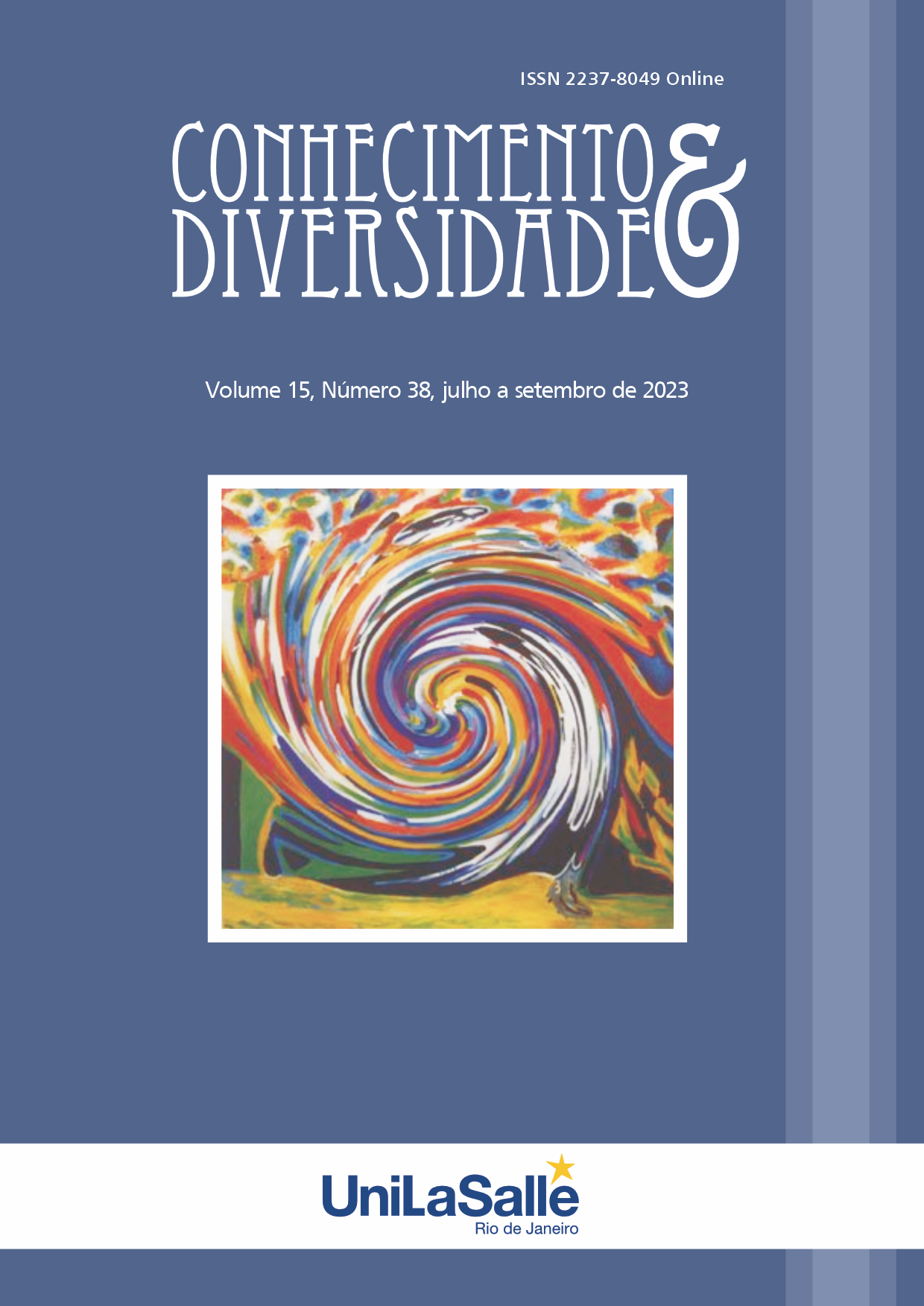THE USE OF PERSONALLY ORIENTED TECHNOLOGIES IN THE PROFESSIONAL TRAINING OF FUTURE SPECIALISTS
DOI:
https://doi.org/10.18316/rcd.v15i38.11044Palabras clave:
Oriented learning Technologies. Education. Educational process. Self-management.Resumen
In the article, the scientific and theoretical analysis of personally oriented learning technologies showed that the essential element of their application in higher education practice is the transformation of the student from an object to a subject of the educational process. The condition for such a transformation is certain internal positions of teachers and students, namely: genuine interest and respect for the personality of the student as a specific individual; use of modern forms and methods of professional training of future specialists; positive-emotional perception of the pedagogical process; transformation of the student from a passive observer who acquires knowledge and experience to an active interlocutor; encouragement to study on the basis of cooperation and self-management, etc.
Citas
ALBOUY V., TAVAN C. Accès à l’enseignement supérieur en France: une démocratisation réelle mais de faible ampleur. Économie et statistique. № 410:61–66, 2007.
ALCINA-CAUDET, A. Encouraging the Use of E-mail and Mailing Lists Among Translation Students. Meta: Translators’ Journal. Vol. 48(4):634-641, 2003.
AUDUC, J. L. Le système éducatif français aujourd’hui. (n. p.): Hachette Education: 464, 2017.
BERNARDINI, S. The theory behind the practice: translator training or translator education? In K. Malmkjsr (Ed.), Translation in undergraduate degree programs. Amsterdam: John Benjamins: 17–29,2004.
BOCQUET, C. La traduction juridique. Fondement et méthode. Collection Traducto.Bruxelles: De Boeck:122, 2008.
BUDIN, GERHARD, KRAJCSO, ZITA & LOMMEL, ARLE. The TransCert project: Ensuring that tansnational translator certification meets stakeholder needs. Translation andInterpreting. 5(1): 143–155, 2013.
BUYSSCHAERT, J.; FERNANDEZ-PARRA, M.; VAN EGDOM, G.-W. Professionalizing the curriculum and increasing employability through authentic experiential learning: the cases OF INSTB.Current trends in translation teaching and learning: 78-111, 2017.
CAMINADE, M. Les formations entraduction et interprétation: Perspectives en Europe de l’Ouest. TTR: traduction, terminologie, rédaction. Vol. 8. N1: 247-270, 1995.
CHYCHUK, A., ZOROCHKINA, T., YACHMENYK, M., KYRYLENKO, N., KUMEDA, О. & MOUGEL, D. Innovative technologies for the implementation of educational activities in higher education institutions. Laplage in Journal. 7(3A): 370-377, 2021. DOI: https://doi.org/10.24115/S2446-6220202173A1416p.370-377
COLINA, S. Teaching translation. From research to the classroom. Boston: McGraw-Hill, 2003. Costof studying in France. Campus France, 2018. URL: https://www.campusfrance.org/en/tuition fees France.
DE WIT, H., HUNTER, F., HOWARD, L., EGRON-POLAK, E. Internationalisation of Higher Education. Study. Brussels, European Parliamentm: 319, 2015. URL:http://www.europarl.europa.eu/RegData/etudes/STUD/2015/540370/IPOL_STU (2015)540370_EN.pdf.
DOBBINS, M., KNILL, C. Higher education governance in France, Germany, and Italy: Change and variation in the impact of transnational soft governance. Policy and Society. Vol. 36. № 1: 67-88, 2017.
BORDAS-BELTRÁN, J. L., ARRAS-VOTA A. M. Mexican students' perspectives on ICT competencies. A gender-based analysis. Revista Latina de Comunicación Social. Vol. 73: 462- 477, 2018.
BROLPITO, A. Digital skills and competence, and digital and online learning. European Training Foundation, 2018: 84, 2018.
CHEN, F., GORBUNOVA, A. R., MASALIMOVA, BÍROVÁ J. Formation of ICT-Competence of Future University School Teachers. EURASIA Journal of Mathematics Science and Technology Education. Vol. 13 (8): 4765-4777, 2017.
HOWE, N., STRAUSS W. Generations: The History of America's Future 1584-2069. New York: William Morrow and Company, 1991: 540, 1991.
KHUANWANGA, W., LAWTHONGA N., SUWANMONKHA S. Development of evaluation standards for professional experiential training of student teachers. Procedia - Social and Behavioral Sciences. № 217: 878-886, 2016.
KNOBEL, M. Digital Literacies: Concepts, Policies and Practices. New York: Peter Lang Publishing: 317, 2008.
KOLODZIEJCZAK, B., ROSZAK M. ICT competencies for academic E-learning. Preparing students for distance education - authors' proposal. ICTE Journal, 6 (3): 14-25, 2017.
LIMBERG, L., OLOF S., SANNA T. Three Theoretical Perspectives on Information Literacy. Human IT: Journal for Information Technology Studies as a Human Science. № 11: 93-130, 2012.
WILLIAMS E. You are the supervisor: The six-focus model, roles and techniques in supervision. Moscow. Independent firm "Klass". 288, 2001.
BERNARD J.M., E. DIGEST. Fundamentals of clinical supervision (2nd ed.) Needham Heights, MA: Allyn&Bakon, 1998.
BERNARD J. M., GOODYEAR R. K. Fundamentals of clinical supervision. Boston: Allyn&Bakon, 1992.
BORDERS L. D., LEDDICK G. Handbook of clinical supervision. Alexandria, VA: Association for Counselor Education and Supervision, 1987.
Descargas
Publicado
Número
Sección
Licencia
Derechos de autor 2023 Daryna Mougel , Svitlana Lypka , Myroslava Fabian , Artur Gudmanian, Inna Humeniuk

Esta obra está bajo una licencia internacional Creative Commons Atribución 4.0.
Tal como recomienda el Public Knowledge Project, RCD adopta para sus artículos una licencia CREATIVE COMMONS: Attribution CC BY 4.0
Esta licencia permite que otros distribuyan, remezclen, adapten y desarrollen su obra, incluso con fines comerciales, siempre que le atribuyan a usted el mérito de la creación original.
Esta es la licencia más adecuada que se ofrece.
Recomendado para la máxima difusión y utilización de los materiales bajo licencia.



